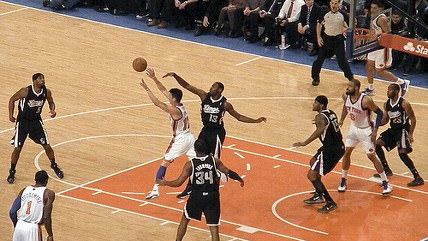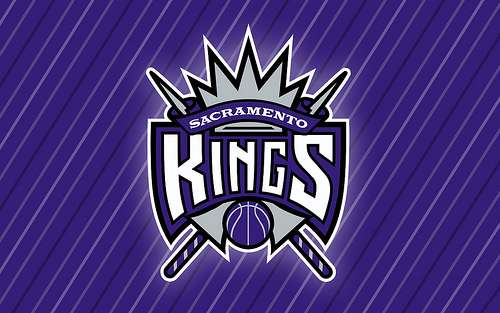Will Sacramento Residents Get the Chance to Stop a Massive Stadium Subsidy?
Hundreds of millions for a not-very-good basketball team


Sacramento is considering contributing $258 million to a stadium to keep the Kings around (following failed efforts to move the team to Seattle or Anaheim, Calif.), bringing them downtown. By this point, hopefully we know the arguments about sports arena subsidies. The city says the stadium will revitalize the downtown area and spur new development and wealth creation. Critics say the predictions of development are wildly optimistic based on evidence from previous stadium developments and that stadiums really just shift money from one part of the city to another and don't actually cause growth. The Sacramento Bee delved deep into both sides of the arguments today. Read here.
California has a robust – but also complicated – ballot initiative system. Opponents of the subsidy collected more than 20,000 signatures to get a two-part vote on the ballot. The first part would have required all city subsidies for sports arenas to be put up for a vote. Then if that vote had passed in June, the city would then be required to put the Kings subsidy up for another vote. Unfortunately, according to the Sacramento City Clerk, they didn't do a good job at following the law. On Friday, she ruled that the petitions weren't up to snuff:
City Clerk Shirley Concolino ruled that petitions circulated by Sacramento Taxpayers Opposed to Pork (STOP) and Voters for a Fair Arena Deal contained numerous violations of state and city elections code. Those deficiencies included the omission of key legal language on the petitions and differences in how nine different versions of the petitions were worded.
"I've never seen a petition with as many flaws as this one," Concolino said.
Sacramento Bee columnist Marcus Breton has been critical of opposition as being funded by "outsiders," as if there was a way to get enough money from "insiders" to fight a city's acts of corporate cronyism from wealthy business leaders unworried about retaliation from Sacramento in terms of contracts, official harassment, or more likely, threats to their own corporate crony deals. We really do need to see an end to the "It's outside money!" argument. It helps give voice to the otherwise voiceless. That outsiders may have additional agendas is not as relevant as critics think. If the anti-arena argument isn't compelling, it will still lose. Money doesn't buy elections, especially for ballot initiatives, but it allows for both sides to make their cases to more people.
Anyway, Breton's latest column, while pointing out that a judge will have the final say as to whether the subsidy initiative will go up for vote, lambasted the anti-arena group for its lack of competence in their efforts:
Left off all the petitions, according to Concolino, was required language notifying all voters that the measure proposed on the petition would be enacted into law if passed by a public vote.
You read that correctly: These Einsteins asked people to sign petitions that never stated what would happen if they signed. Duhhhh.
You might say: People understood that signing the arena petition would lead to a vote whose outcome could become city law.
OK, but how you can we assume everyone knew that?
"Just because people signed (the petitions) doesn't mean you don't have to follow the provisions," Levinson told The Bee.
"There is absolutely case law that says, 'This might sound picky, but we have these provisions for a reason,' " she said.
It does sound picky, but having encountered signature-gatherers outside of grocery stores in California who have absolutely no idea what they're asking people to sign, I have to agree. Some ballot initiatives are advisory and don't actually lead to new laws.
But, having agreed to a regulation that makes the ballot initiative even more complicated, this is why the "outside money" complaint is pure bullshit. State regulations make it extremely difficult for average people to operate on their own to get ballot initiatives passed (would the sarcastic Breton had known that language was needed if the clerk hadn't said so?). Of course these folks are going to need outside assistance.
Reason is all over the corporate cronyism of publicly funded sports stadiums. In our January issue, Nick Gillespie interviewed sports economists J.C. Bradbury about why stadium subsidies keep winning ("They always underestimate the costs and overestimate the benefits"). You can also watch the interview below:


Show Comments (23)